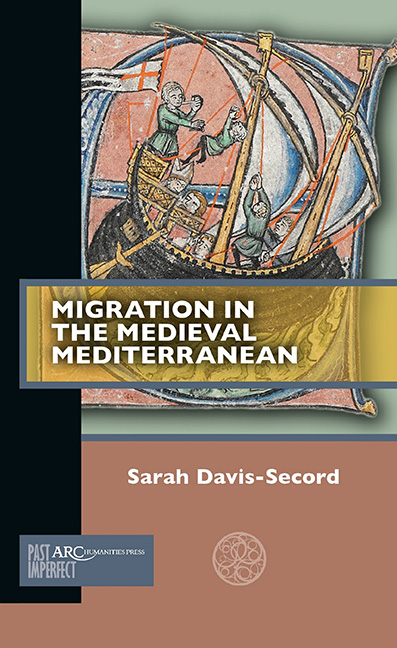Book contents
- Frontmatter
- Contents
- Introduction
- Chapter 1 Refugees from the Islamic Conquests
- Chapter 2 Hadrian and Theodore
- Chapter 3 St. Elias the Younger
- Chapter 4 Constantine the African
- Chapter 5 Jewish Refugees from the Norman Invasion
- Chapter 6 Merchants
- Chapter 7 Imam al-Mazari and Other Muslim Scholars
- Chapter 8 Unnamed Sicilian Girl
- Chapter 9 George of Antioch and Other Immigrants to Sicily
- Chapter 10 Moses Maimonides
- Chapter 11 Religious Converts
- Conclusion
- Further Reading
Chapter 2 - Hadrian and Theodore
Published online by Cambridge University Press: 13 January 2022
- Frontmatter
- Contents
- Introduction
- Chapter 1 Refugees from the Islamic Conquests
- Chapter 2 Hadrian and Theodore
- Chapter 3 St. Elias the Younger
- Chapter 4 Constantine the African
- Chapter 5 Jewish Refugees from the Norman Invasion
- Chapter 6 Merchants
- Chapter 7 Imam al-Mazari and Other Muslim Scholars
- Chapter 8 Unnamed Sicilian Girl
- Chapter 9 George of Antioch and Other Immigrants to Sicily
- Chapter 10 Moses Maimonides
- Chapter 11 Religious Converts
- Conclusion
- Further Reading
Summary
Two other seventh-century men undertook migrations similar to those of the Syrian and Greek popes, fleeing the Muslim conquests in the Levant and moving westward. But these two men went even further than Rome, eventually moving all the way to England, where they became two of the most important Christian leaders in early medieval England. Their routes of migration, through Italy, highlights the central role that the Roman Christian Church played in the lives of those seeking advancement in ecclesiastical careers. It also shows the indirect and multi-stage nature of many paths of migration. Their reasons for movement—a mix of regime change, flight from danger, and travel for education and career advancement— also echo the migration stories of many other migrants whose stories remain available to historians.
Theodore of Tarsus, as he was known in early English sources, was appointed archbishop of Canterbury—the highest ecclesiastical office in that land—by Pope Vitalian (657–72). Originally, as his name suggests, he was from the region of greater Syria, which was under Byzantine control until a series of conquests in the early seventh century. Born in the city of Tarsus in 602 and probably educated in Antioch, Theodore came from a Greek Christian family. Conquests by the Persian Sassanid Empire (613–14) and then, about two decades later, by the expanding Muslim state removed the Levantine coast from the Greek cultural and political orbit. At the time of the Persian conquest, Theodore would have been around twelve years old, and well into adulthood when the Muslim conquerors took Tarsus in 637. Extant sources do not tell us exactly when he and his family left the area, but the chronology of his life and education suggests that they may have migrated away from Syria around the time of the Muslim conquest.
For someone like Theodore, educated in the Greek tradition and seeking a career in the Church, life under Muslim control and the destruction to the region's ecclesiastical structures may have seemed unbearable. Many monks from the Syria–Palestine area fled after these conquests, many to Sicily and southern Italy or to Rome or Constantinople. It should be noted, however, that not all highly-educated Christian thinkers and administrators made such a choice.
- Type
- Chapter
- Information
- Migration in the Medieval Mediterranean , pp. 21 - 28Publisher: Amsterdam University PressPrint publication year: 2021



